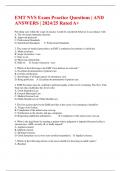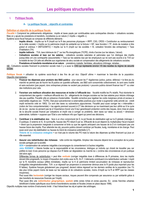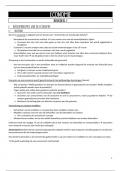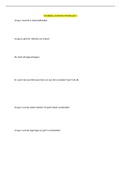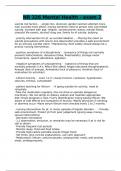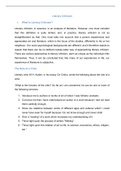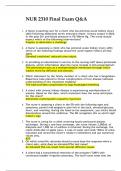Hamlet
Tragic hero and Hamartia:
Hamlet, the tragic hero, was a typical prestigious well-educated prince of his time. He was a man of “a noble
mind”, as mentioned in Ophelia’s soliloquy. His father’s murder at the hands of Claudius and his mother
remarrying his uncle is a turning point in Hamlet’s life. His values are shaken to the core, he is torn between
avenging his father or remaining morally virtuous.
His intelligence and moral compass drive him into insanity that paralyses him from taking any action for so
long, hence his inaction being his hamartia. He is always aware of all sides and consequences of his actions,
which makes him rational and considerate to some and a passive “coward” to others.
Unlike Aristotle’s tragic heroes, Shakespeare’s are made aware of their flaws and the repercussions of their
decision. In alliance with Shakespeare’s belief that “character is destiny”, Hamlet believes that “the
conscience does make cowards of us all”.
Female Figures:
Hamlet refers to Gertrude as “madame” instead of mother, hinting at their newly troubled relationship post
her marriage to Claudius. “a beast would have mourned longer”, compared to a monster and “lost her blush
of modesty”. Her words are as tormenting as “daggers”. She dies accidently drinking the poisoned wine
Claudius prepared for hamlet; her incestuous deed led to her downfall.
Despite Ophelia being a typical 16th century chaste “angel of the house”, his relationship with Ophelia is an
extension of that with his mother; the betrayal he felt from his mother resulted in him having subconscious
trust issues that have been projected on Ophelia. In addition, hamlet is “crawling between heaven and
earth” and is in an inner conflict with himself ; this turbulence is reflected in the uncertainty of his love.
Ophelia goes “mad” and drowns herself when left unguarded by a male figure, Polonius is “slain”, hamlet is
“gone”, and Laertes is in France. (Weak female in a patriarchy)
Women in hamlet are dominated by patriarchs, but in The Merchant of Venice, we have women as being
powerful matriarchs in society, while the men appear as weak and failures who are saved by them. While In
Macbeth, we have a balance between Macbeth and Lady Macbeth. Both of them are powerful in their own
ways.
Hamlet and Ophelia both go mad after having their fathers killed by a close member, but Ophelia is genuine
and pure with no ill or opportunistic intentions. (Duality)
Claudius:
Manipulative “incestuous” “beast” “devil’s” advocate. His reaction to the play either indicates guilt (prays
right after and his “conscience” is triggered but fails to repent as he is still fixated on earthly matters) or fear
of any “offense”. He wonders “Is there not rain enough in the sweet heavens” “To wash” ”his cursed hand
with brother’s blood?” (blood = guilt) He is the ultimate villain and earns an equally atrocious murder; he is
murdered twice by sword and wine.
Tragic hero and Hamartia:
Hamlet, the tragic hero, was a typical prestigious well-educated prince of his time. He was a man of “a noble
mind”, as mentioned in Ophelia’s soliloquy. His father’s murder at the hands of Claudius and his mother
remarrying his uncle is a turning point in Hamlet’s life. His values are shaken to the core, he is torn between
avenging his father or remaining morally virtuous.
His intelligence and moral compass drive him into insanity that paralyses him from taking any action for so
long, hence his inaction being his hamartia. He is always aware of all sides and consequences of his actions,
which makes him rational and considerate to some and a passive “coward” to others.
Unlike Aristotle’s tragic heroes, Shakespeare’s are made aware of their flaws and the repercussions of their
decision. In alliance with Shakespeare’s belief that “character is destiny”, Hamlet believes that “the
conscience does make cowards of us all”.
Female Figures:
Hamlet refers to Gertrude as “madame” instead of mother, hinting at their newly troubled relationship post
her marriage to Claudius. “a beast would have mourned longer”, compared to a monster and “lost her blush
of modesty”. Her words are as tormenting as “daggers”. She dies accidently drinking the poisoned wine
Claudius prepared for hamlet; her incestuous deed led to her downfall.
Despite Ophelia being a typical 16th century chaste “angel of the house”, his relationship with Ophelia is an
extension of that with his mother; the betrayal he felt from his mother resulted in him having subconscious
trust issues that have been projected on Ophelia. In addition, hamlet is “crawling between heaven and
earth” and is in an inner conflict with himself ; this turbulence is reflected in the uncertainty of his love.
Ophelia goes “mad” and drowns herself when left unguarded by a male figure, Polonius is “slain”, hamlet is
“gone”, and Laertes is in France. (Weak female in a patriarchy)
Women in hamlet are dominated by patriarchs, but in The Merchant of Venice, we have women as being
powerful matriarchs in society, while the men appear as weak and failures who are saved by them. While In
Macbeth, we have a balance between Macbeth and Lady Macbeth. Both of them are powerful in their own
ways.
Hamlet and Ophelia both go mad after having their fathers killed by a close member, but Ophelia is genuine
and pure with no ill or opportunistic intentions. (Duality)
Claudius:
Manipulative “incestuous” “beast” “devil’s” advocate. His reaction to the play either indicates guilt (prays
right after and his “conscience” is triggered but fails to repent as he is still fixated on earthly matters) or fear
of any “offense”. He wonders “Is there not rain enough in the sweet heavens” “To wash” ”his cursed hand
with brother’s blood?” (blood = guilt) He is the ultimate villain and earns an equally atrocious murder; he is
murdered twice by sword and wine.

